This week, I’ll continue to explore the names of local landmarks, with thanks given to the information and fact-checking provided by my “Fairy Godmother,” who is a walking encyclopedia when it comes to this area’s history.
Laverne Street was part of Fallon’s original footprint, extending as it did then and does now from Williams Avenue to Virginia Street, right in the heart of the town. The street was named for Doris Laverne Wildes, whose name in the early Fallon newspapers was always attached to the evocative phrase, “The first white child born in Fallon.” Her birth date was January 1, 1903, and her arrival, indeed, seemed to usher in a new year of settlement and growth in Fallon. Laverne’s parents were Dexter “Dick” Wildes and Jenny Mayette Wildes who came to “Jim Town,” as early Fallon was called, in 1898, and homesteaded in the Wildes District. Laverne later married Austin Bussert in 1923.
The Wildes name and history remain with us in other ways. Most of you are familiar with Wildes Road, for example, whose twists and turns loosely mark the northern boundary of the Wildes District. But more dramatic is the story of our murdered sheriff, Mark Wildes, brother to Dexter and uncle to Laverne.
Mark Wildes was born in 1874 and made his way in the world as a carpenter and builder. That way eventually led to Fallon, where, according to an account made by his son, Francis, he built the first high school, the Jeffries Building (now part of the Nugget), the “old Baptist Church (on LaVerne Street) and the Overland Hotel. He was apparently competent and well-liked, as he was elected one of Fallon’s first City Council members (1908), Fallon Mayor (1909), and Churchill County Sheriff (1916).
His murder is a tragedy of born of war, politics, idealism and youth.
The year was 1918, and the backdrop was World War 1.
In May of that year, Sheriff Wildes was sent to arrest a young man named Paul Walters, who was living with his parents in Nevada City, a socialist colony located about six miles east of Fallon on the Austin Highway (4350 Austin Highway). The colony had been founded by those whose shared values included pacifism, and young Paul had been drafted and ordered to report for induction into the United States Army. After he failed to appear, Wildes traced Walters, now a fugitive from justice to the mining camp of Jessup, near Lovelock, Nevada. Wildes spotted the boy walking down a canyon and asked him if his name was Paul Walters. Walters drew a revolver, fired several rounds into Wildes, and took off on a dead run.
Wildes was taken to the railroad stop at Fanning, where doctors were called from Lovelock to try to staunch the wounds. Wildes was then transported to Lovelock, where he died.
The news of the shooting of the sheriff shocked the state. Governor Emmet Boyle announced a reward of $1200 for Walters, dead or alive. The Churchill County Commissioners pitched in an additional $500, and Fallon folks raised $209.50 to supplement the total reward. The hunt was on, and Walters headed into the alkali flats north of Parran, where a group of Indian trackers spied him. When Walters waved a .30-.30 rifle, he was killed instantly by one of the trackers named Skinny Pascal.
Yes, our place is filled with stories. Will you add yours? [email protected]


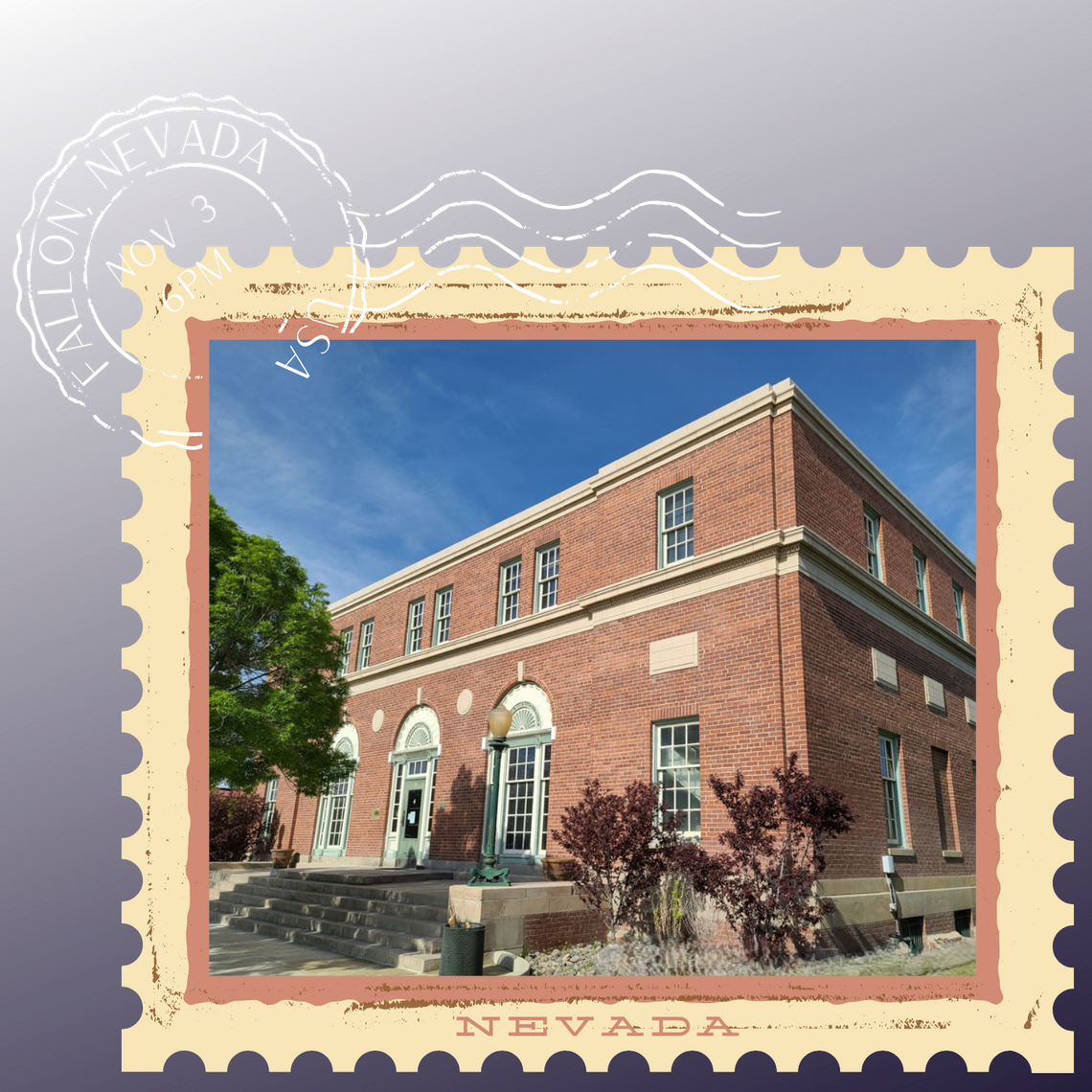
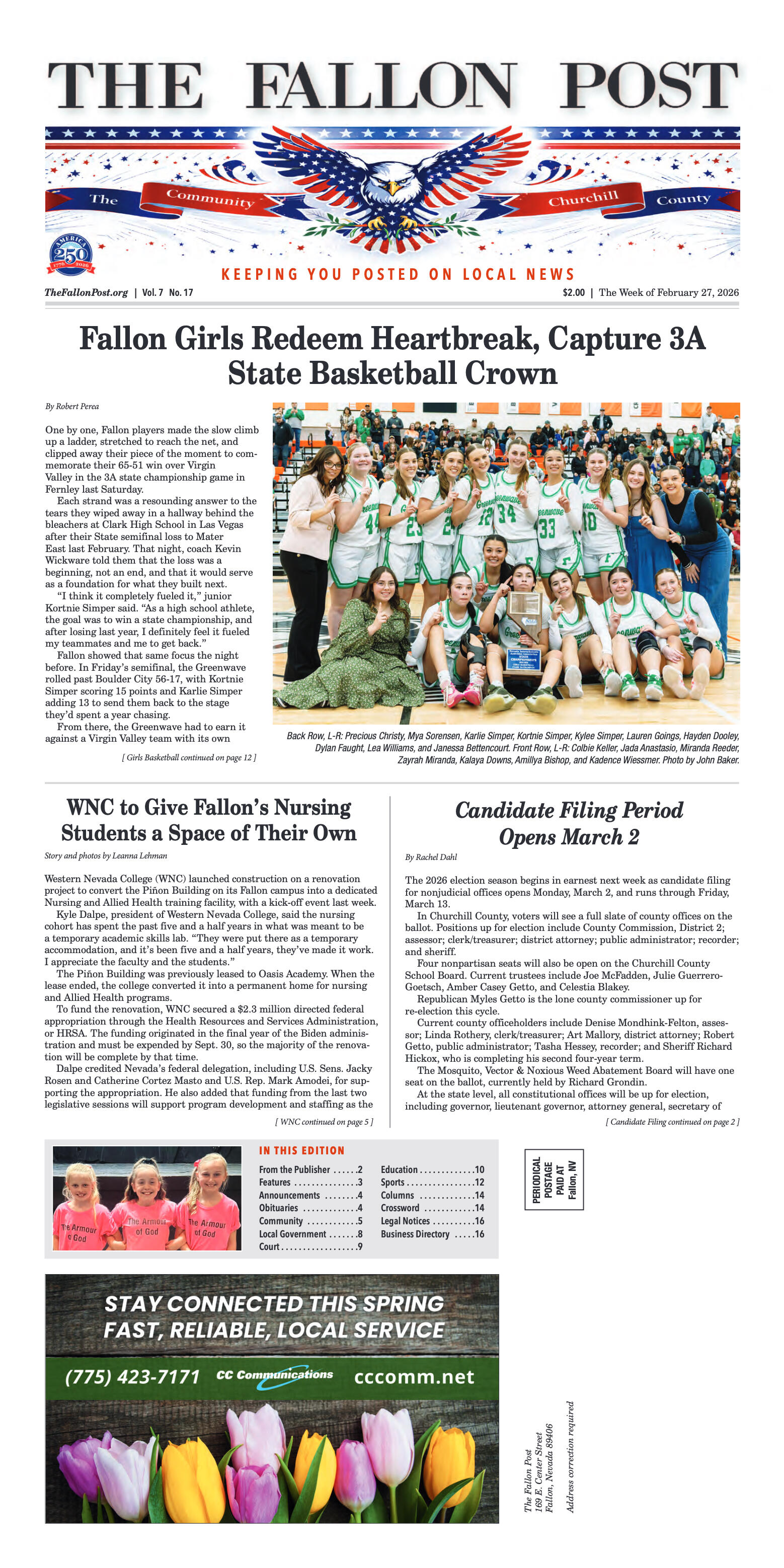
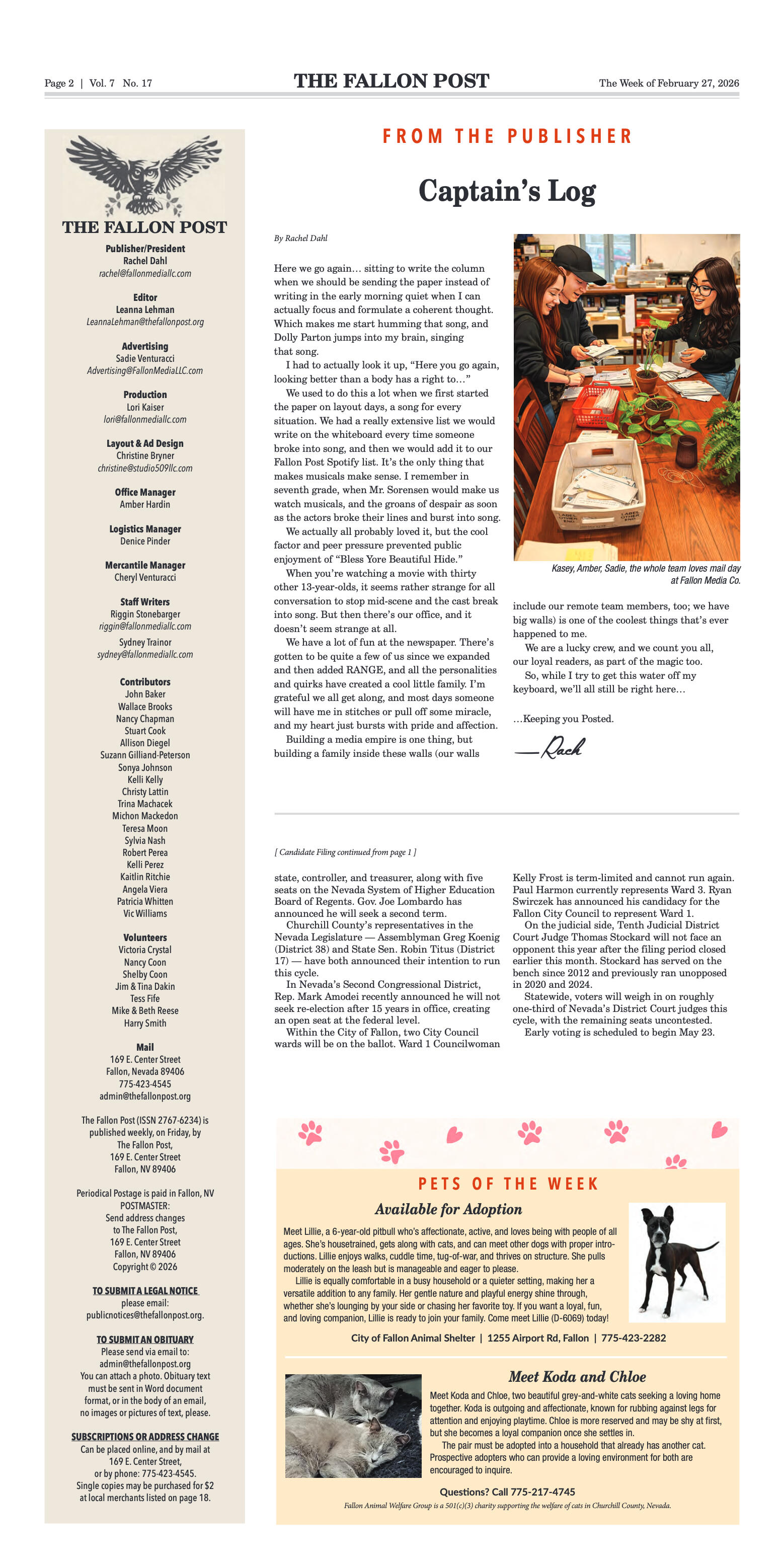
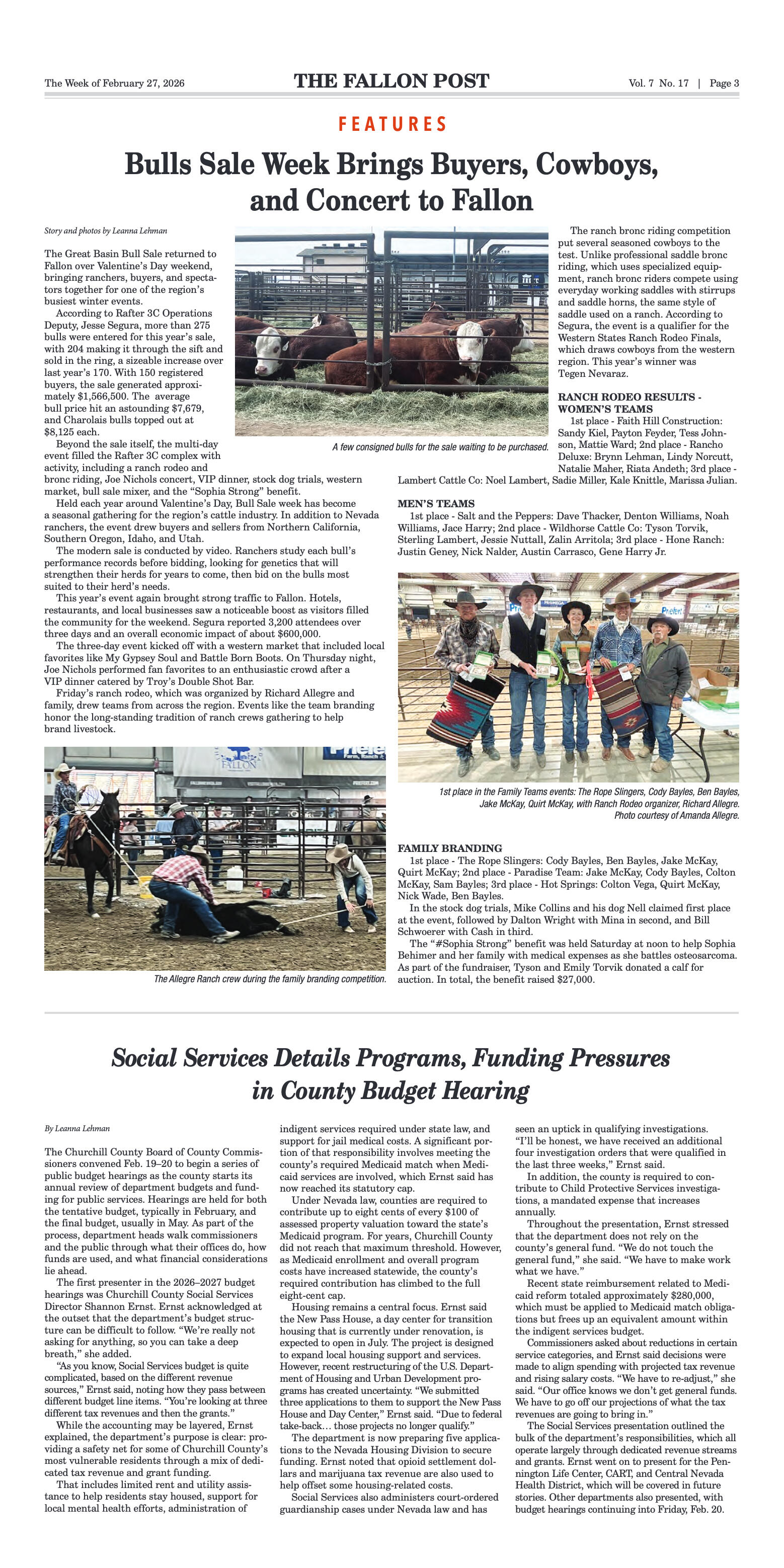
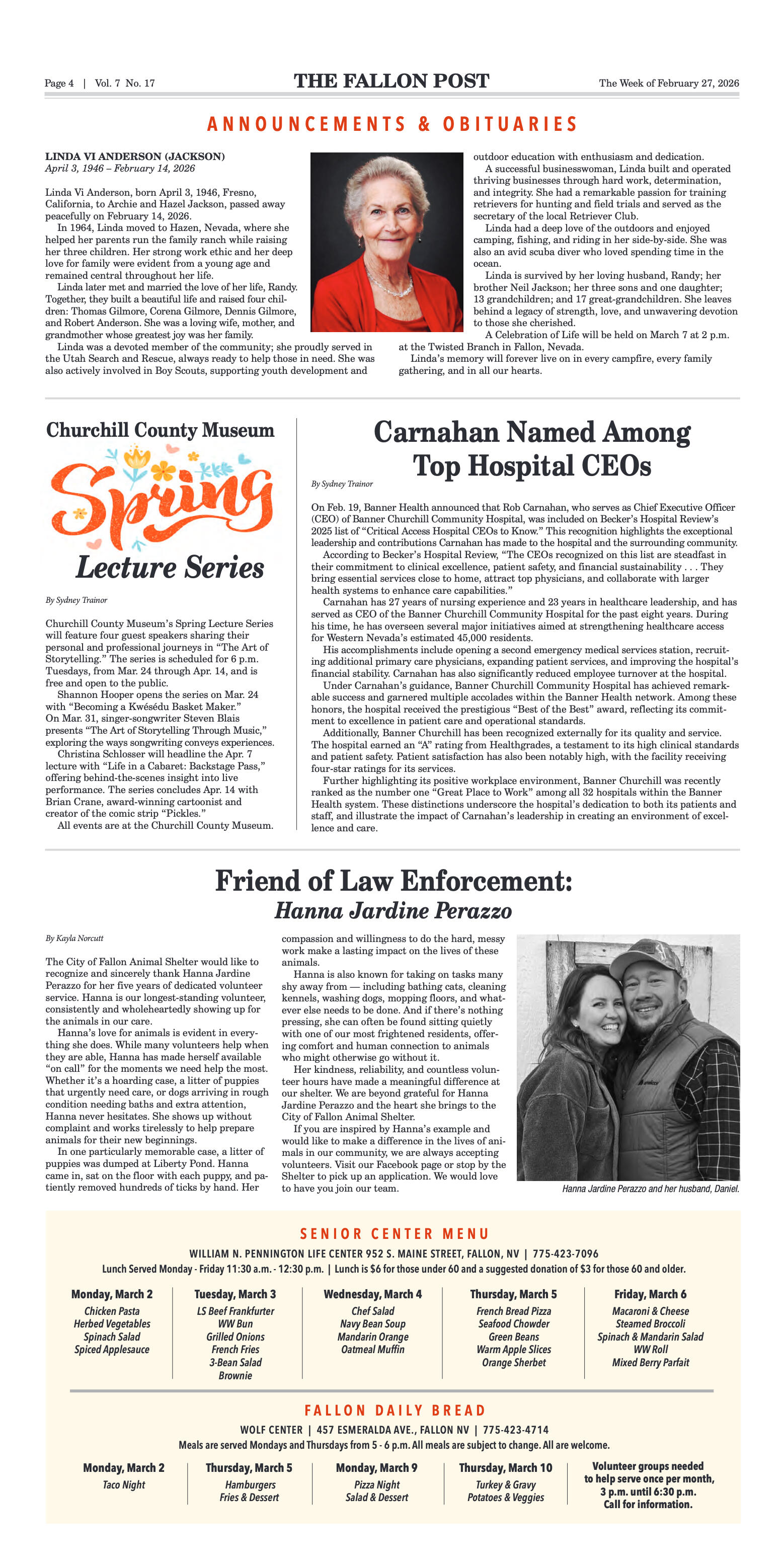
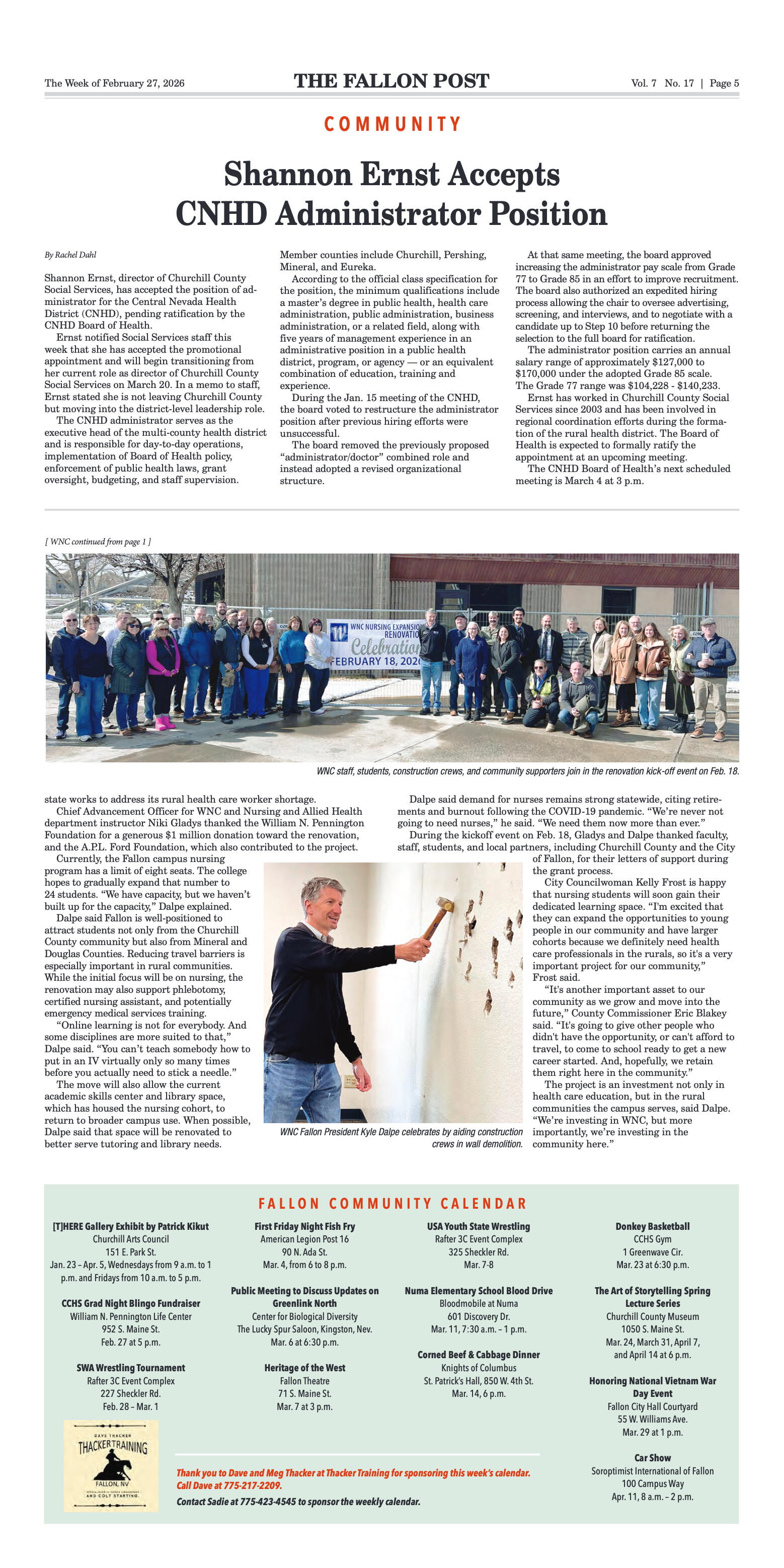

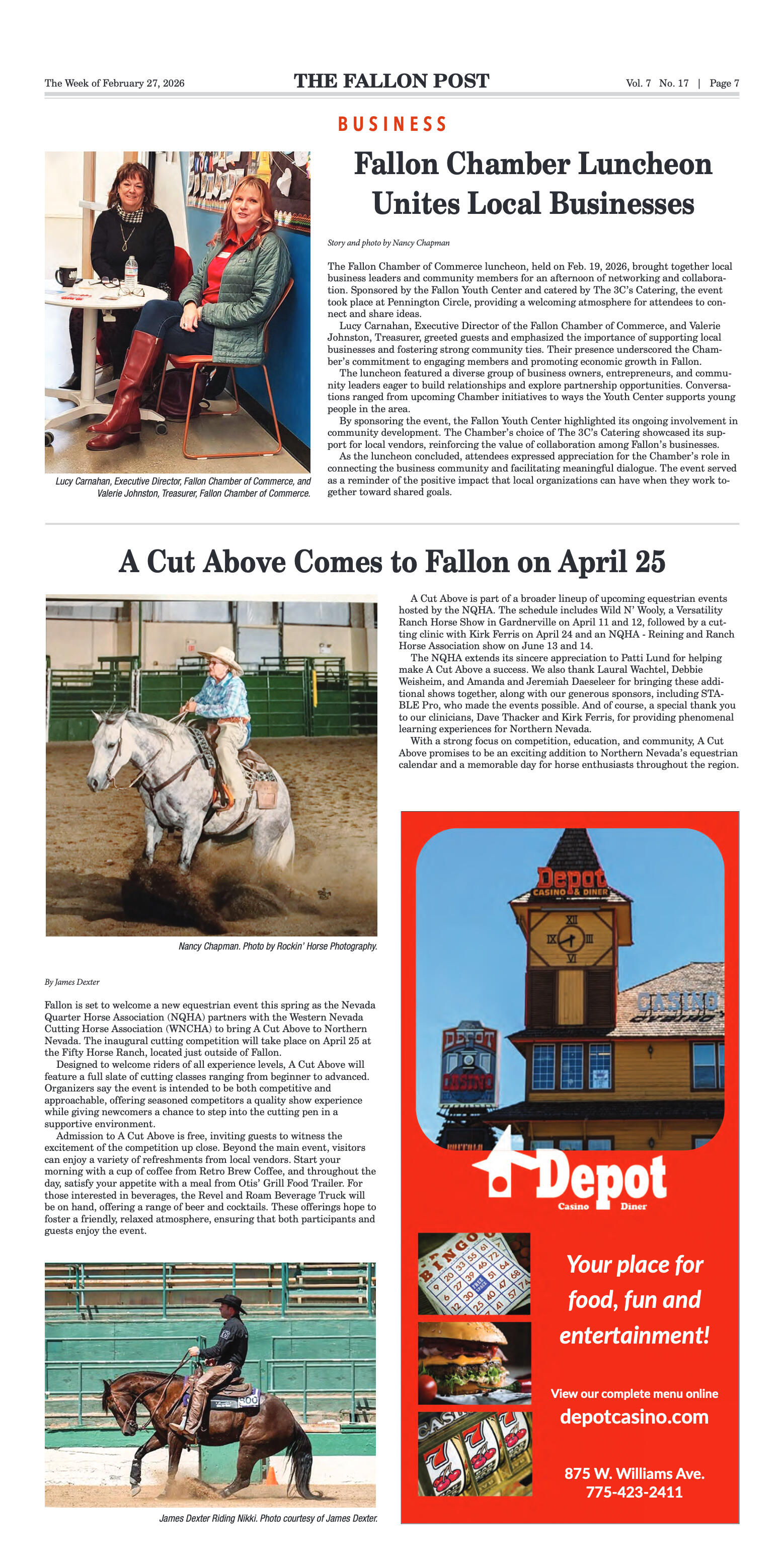
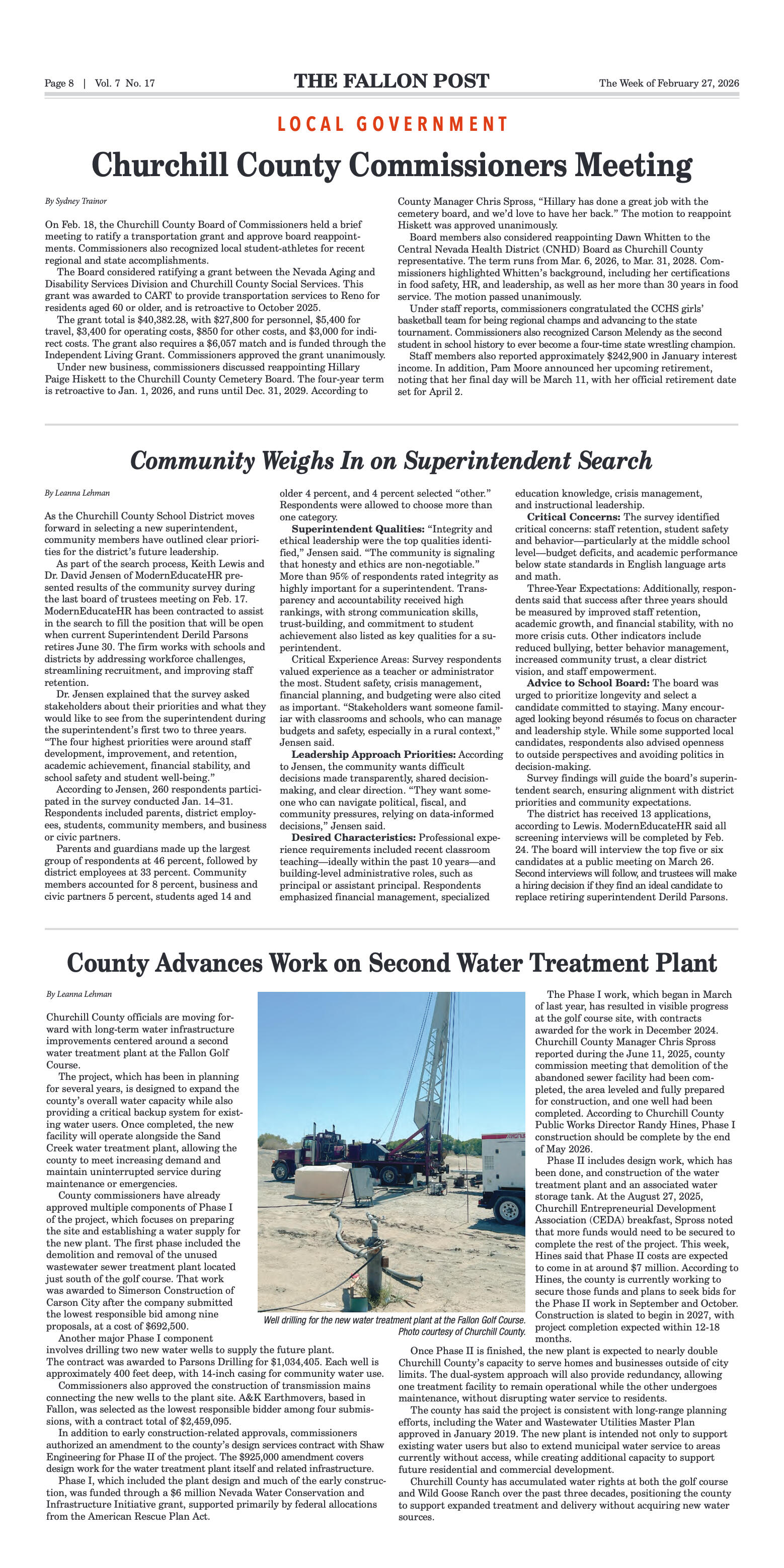
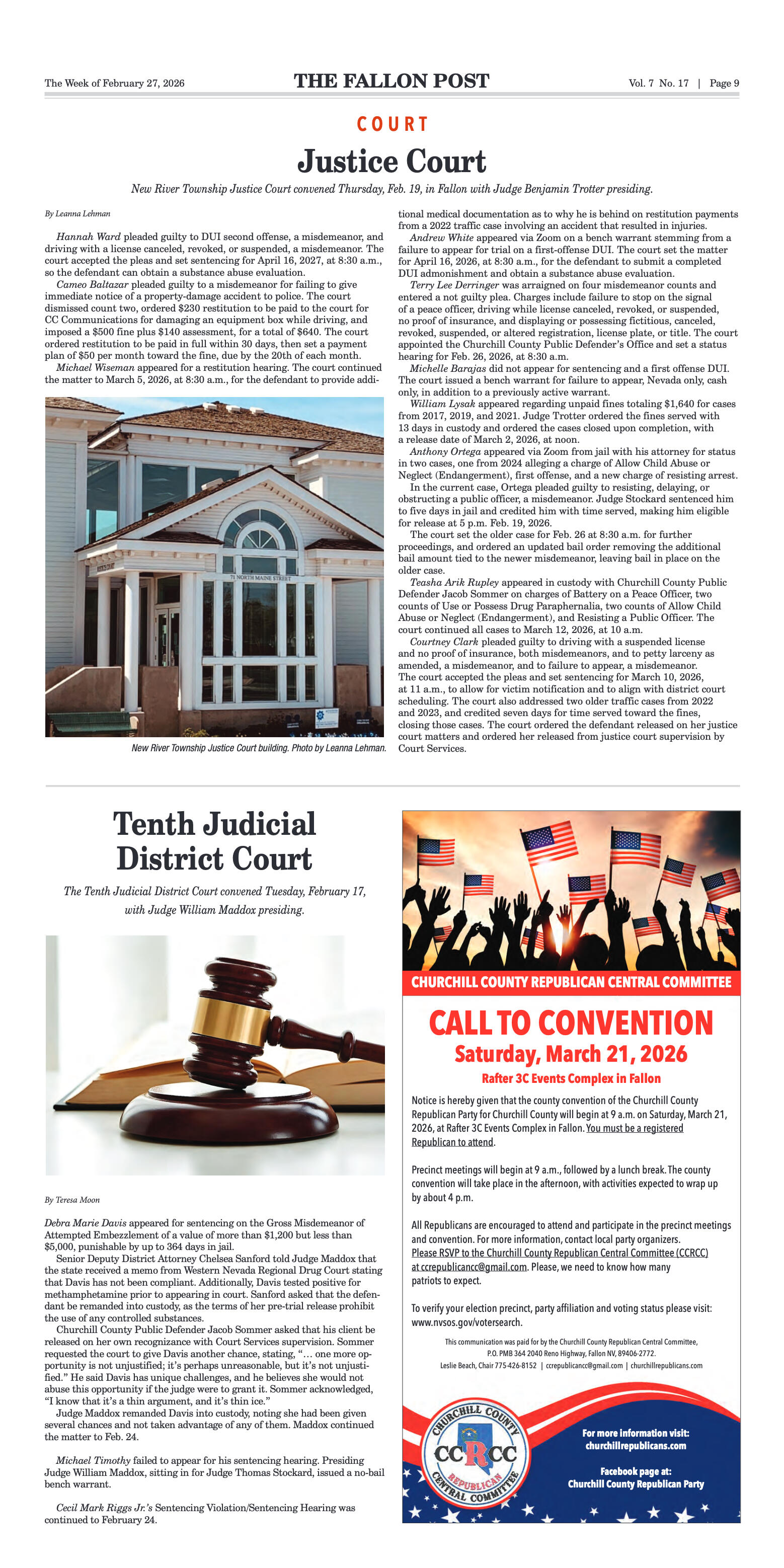
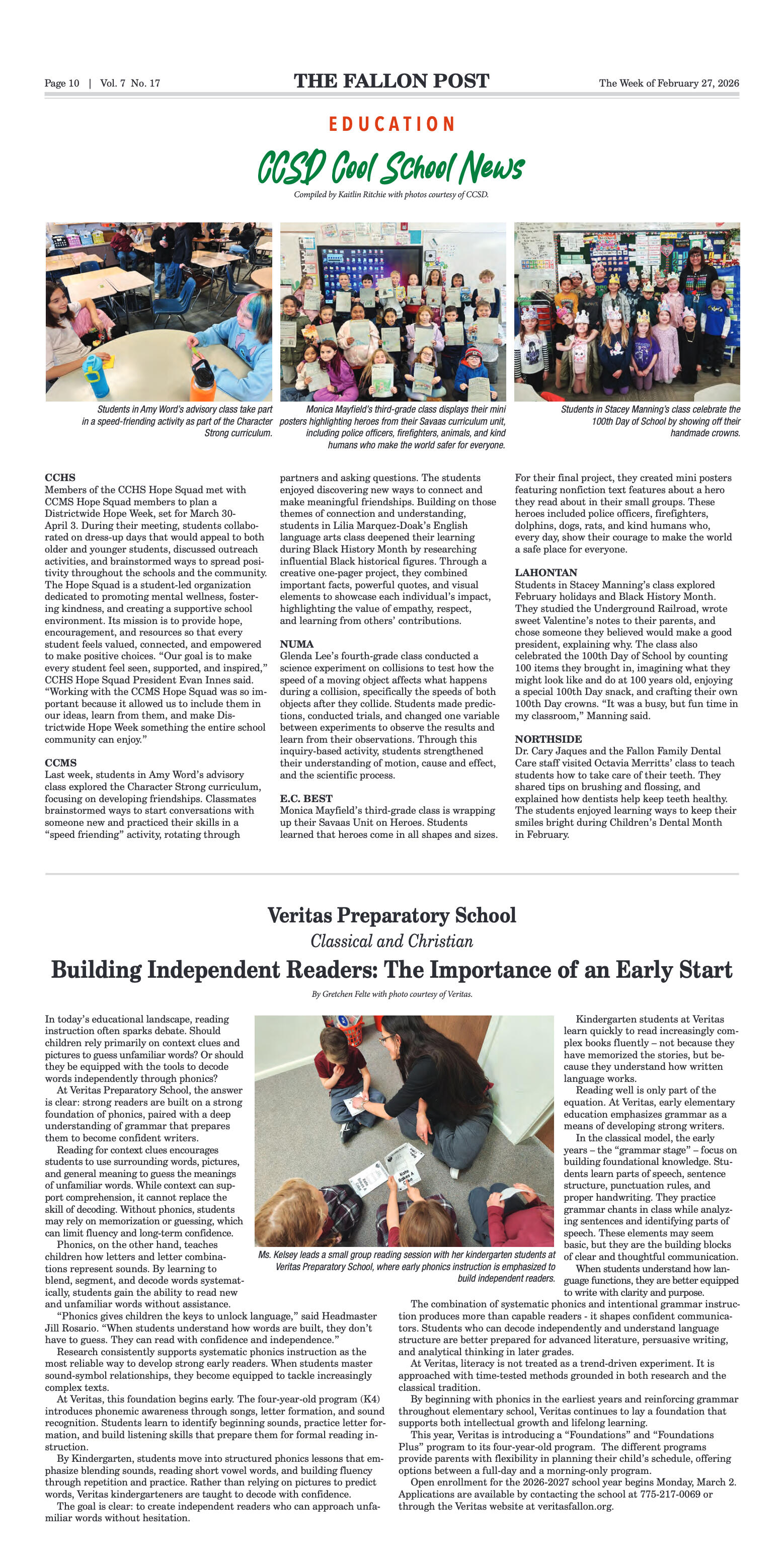
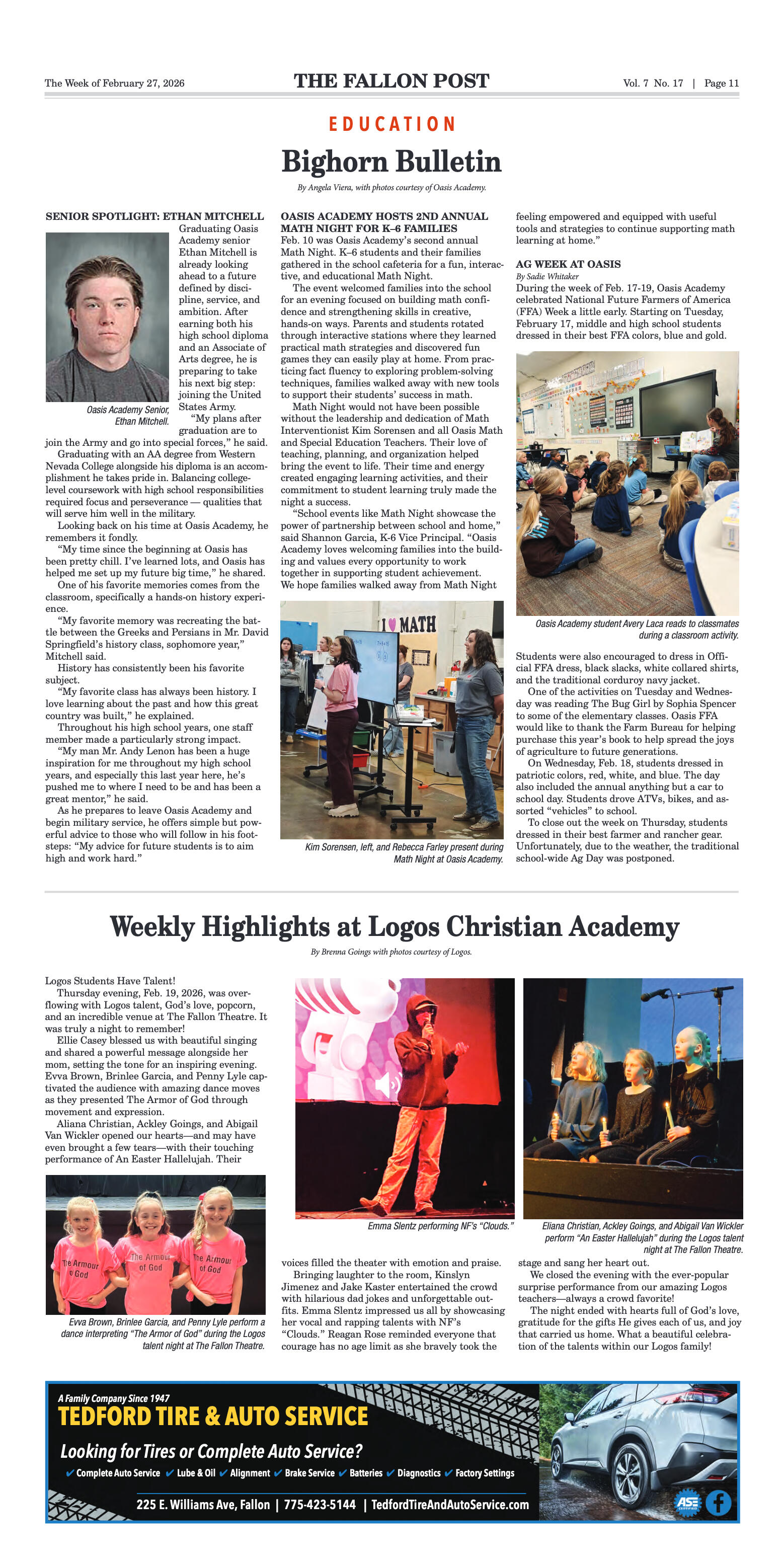
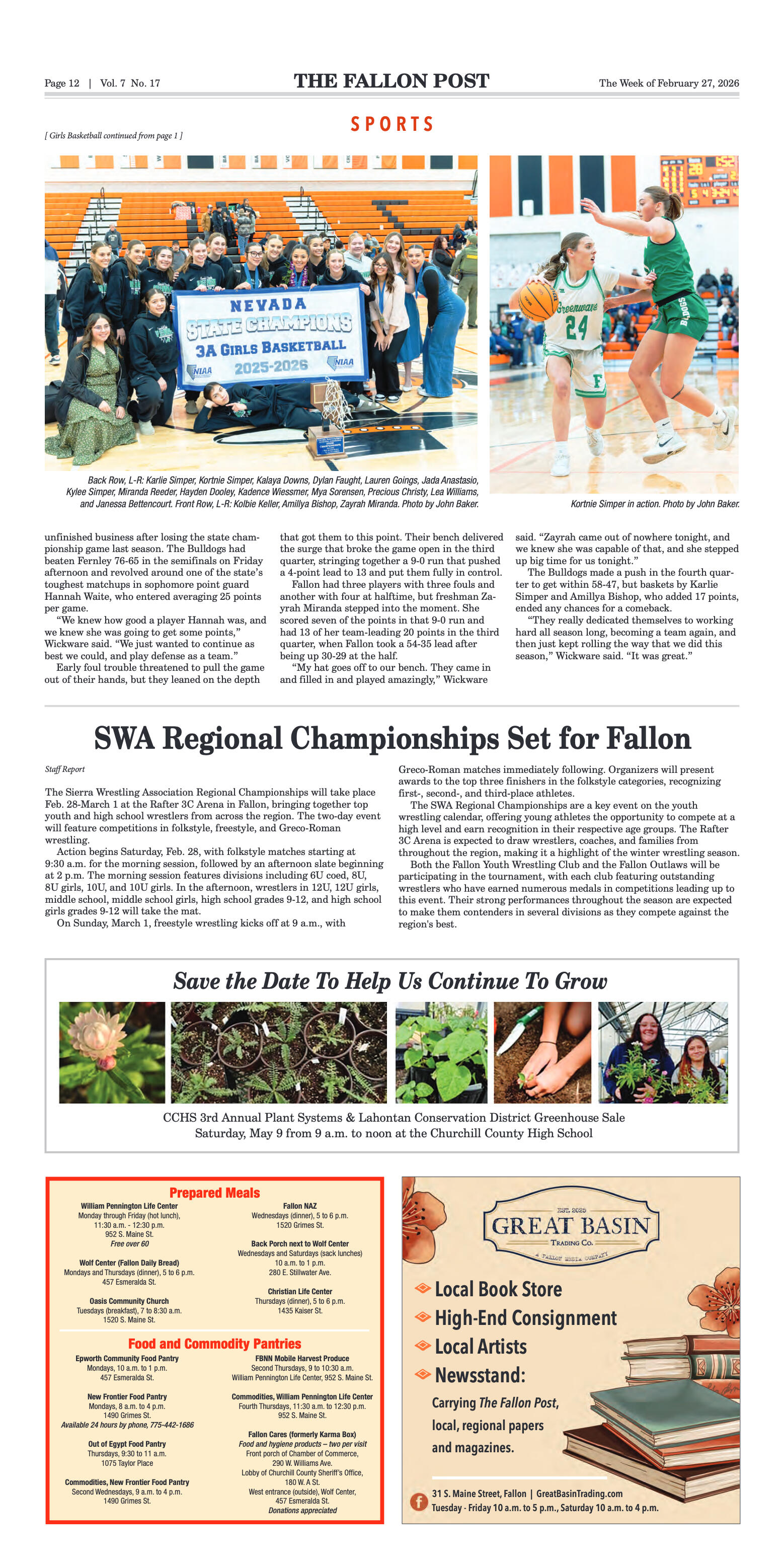

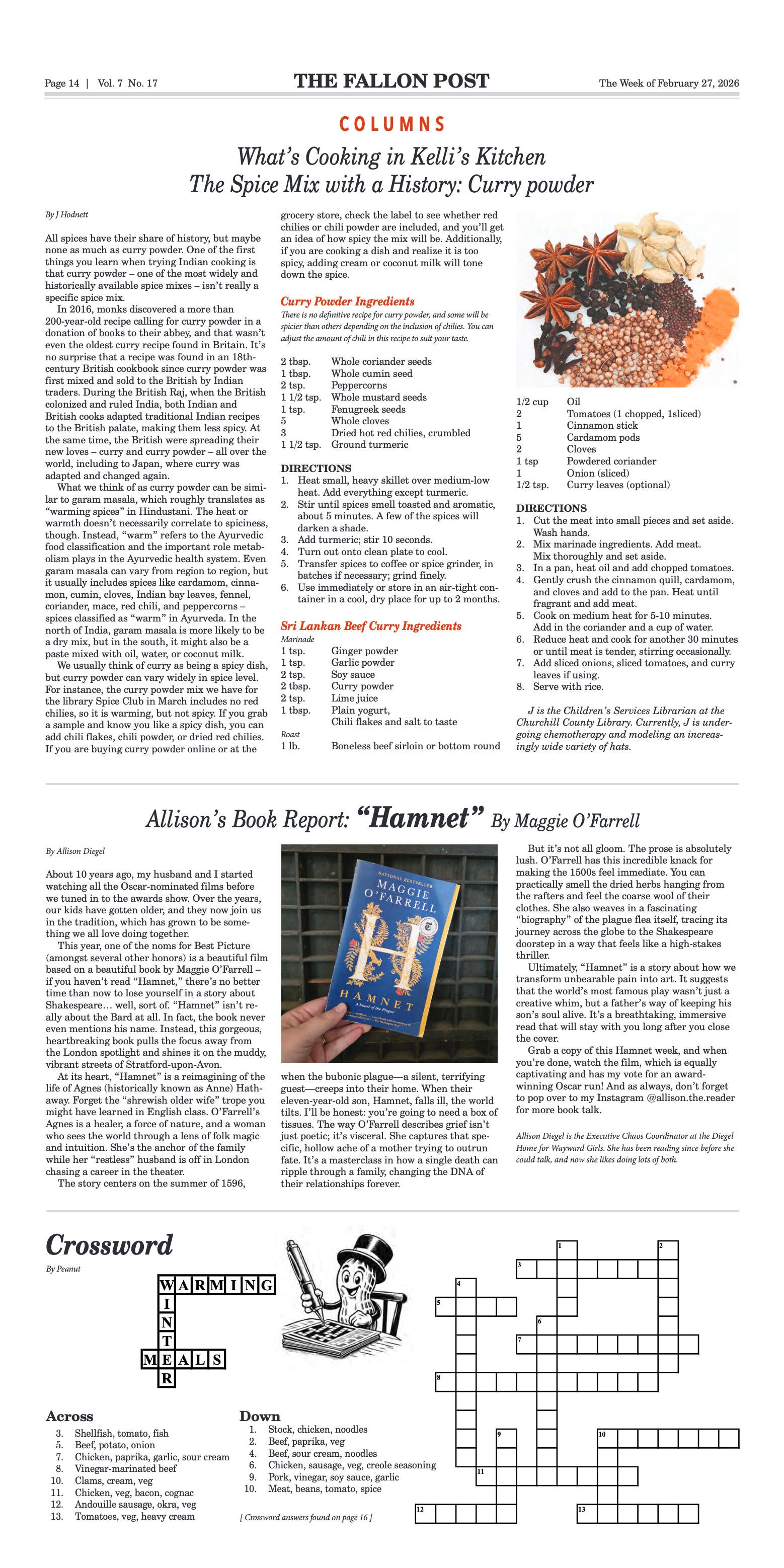
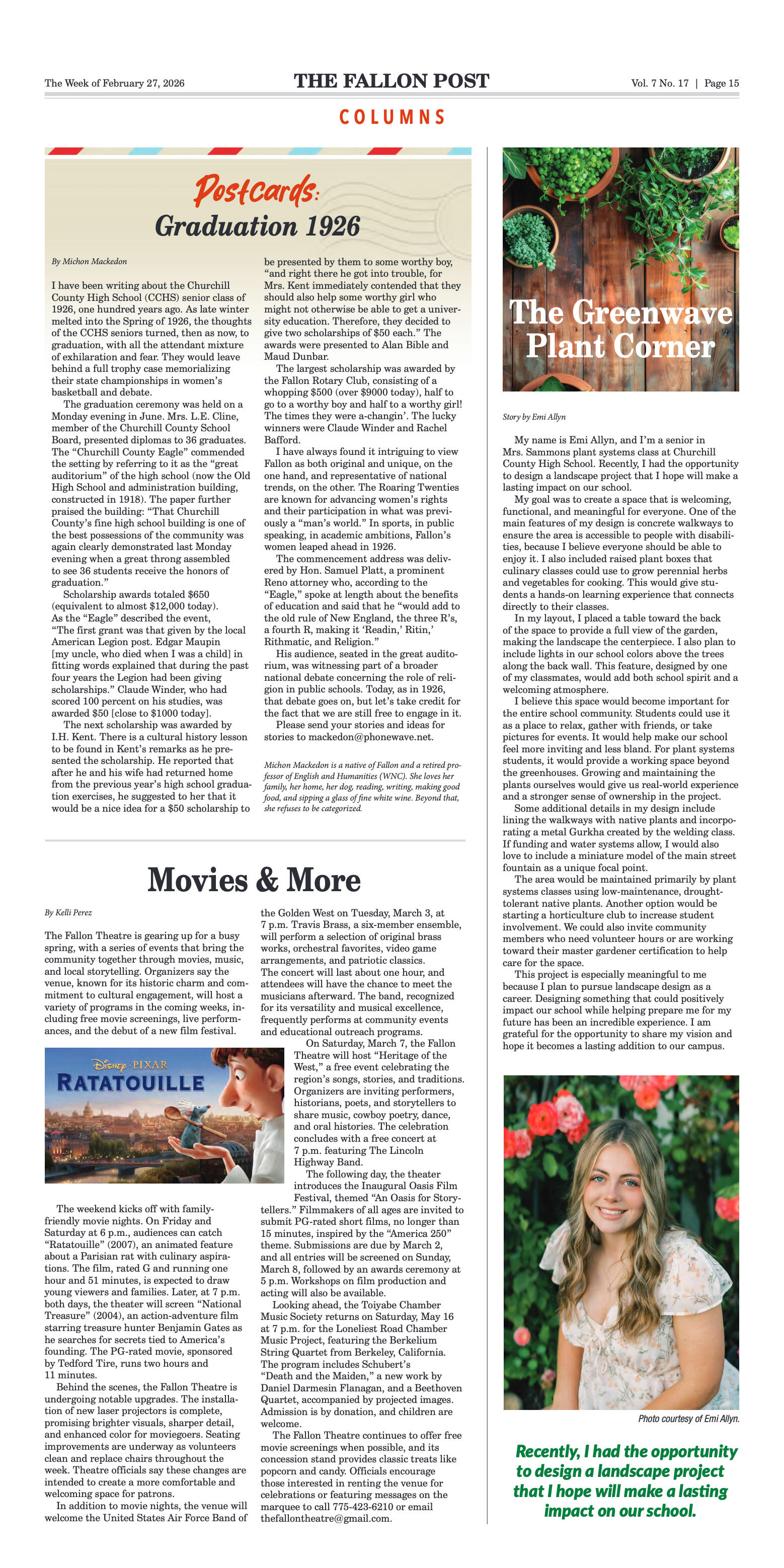
























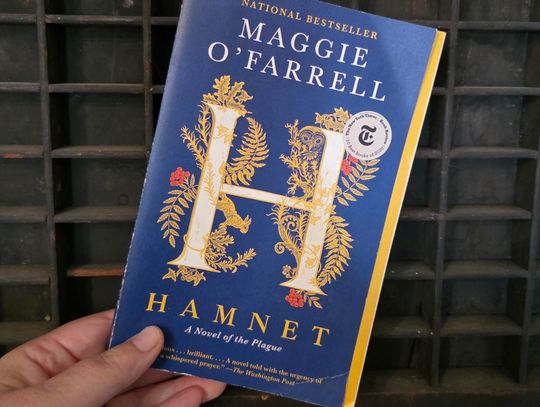
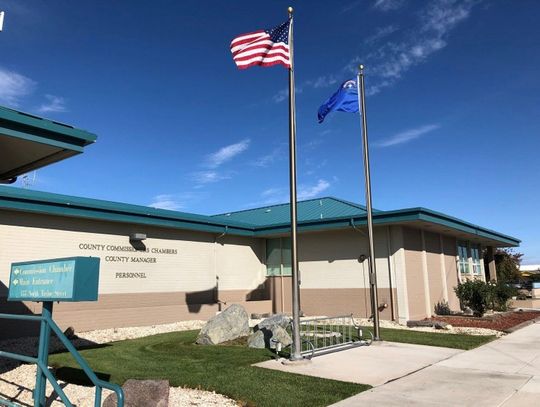

Comment
Comments